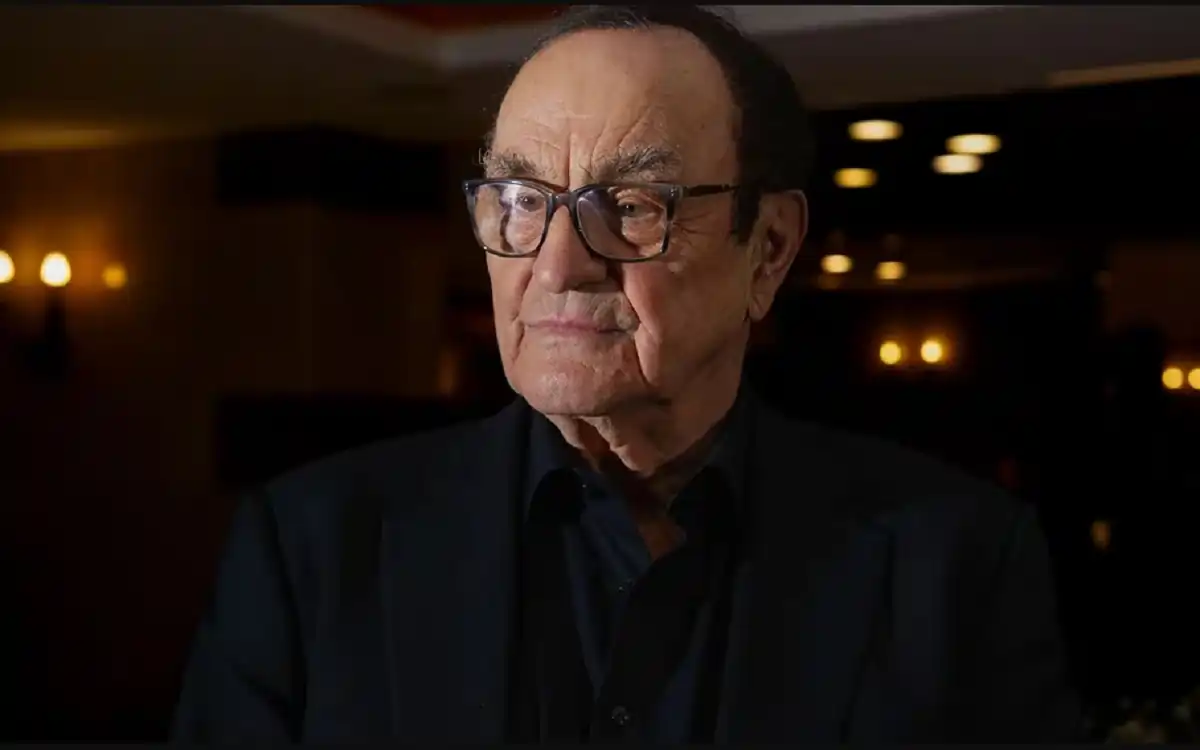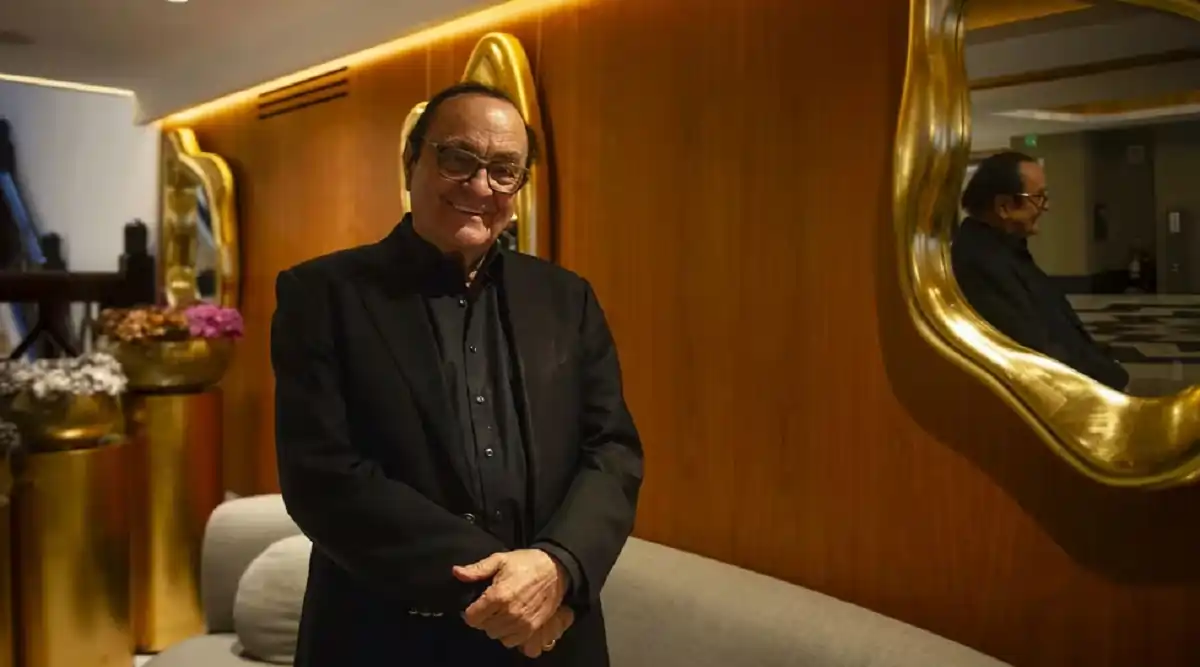Charles Dutoit and his superb baton, once again at the Teatro Colón
The Swiss conductor conducts this week “La Carrera del Libertino” and on Sunday 30th he will close the Argerich Festival. “The Argentine audience is very respectful. Others run off to get their cars,” he says.

The prestigious Swiss conductor conducts the opera “La Carrera del Libertino” at the Teatro Colón (Photo: Télam S. E.)
Charles Dutoit was born in Switzerland 86 years ago and in his extensive career as a conductor he went around the world on countless occasions, during which he had the honor of witnessing rehearsals of Igor Stravinsky, creator of La Carrera del Libertino, opera that will be presented at the Teatro Colón on Thursday 20, Sunday 23 and Tuesday 25.
“I came to Argentina for the first time in 1958 as a violinist, playing in a chamber group at the Teatro Colón, I think it was the second season of the Mozarteum. It was a very interesting trip because we spent 18 days by ship, with stops in Brazil and Africa. There was an Asian flu epidemic and we were stranded in Santiago de Chile because the border was closed. There was the famous Spanish guitarist Andrés Segovia, who did not play with us, but was part of the ticket, and with his connections he got permission to cross to Mendoza by bus”, recalls Dutoit in an interview at a hotel in Buenos Aires.
Campechano, polyglot thanks to the three official languages of his country (Swiss-German, Italian and French), also speaks English and Spanish (he was married to Martha Argerich, with whom he has his daughter Anne). He mixes a bit of each language when he speaks, perhaps not out of ignorance, but to find the right word to express what he wants to say.
“On that first visit, we played in Mendoza, Rosario and Buenos Aires. In the 60’s I already came as director. In Montevideo was the first one and here, I did it with the National Symphony at the Cervantes Theater. I also came with Martha many times. We played at the Colón, at the Cine Rex… other times I came with the French and Montreal Symphonies”, recalls this conductor who has toured China 25 times and Japan thirty times. Together with his wife, Canadian violinist Chantal Julliet, he is putting together his archive, which includes 70 performances in the United States.
The journey through Buenos Aires is not yet documented, but to the above mentioned, he adds the cycle of operas by Richard Wagner between 2002 and 2004 (“it was unfinished due to the closure of the Theater for a remodeling”, he recalls) and the opening of this year’s concerts with “Resurrection”, by Gustav Mahler, in a crowded venue of La Rural.
You may be interested in: The Argerich Festival at the Teatro Colón will be transmitted by streaming.
“The public has changed, in the sense that we are old and young people have other tastes. But here, in Argentina, I notice that the public is very well. It is very respectful. In other places – he limits himself to not mentioning them – people run out of the theater to get their cars. Here, no, there is more dialogue,” Dutoit acknowledges. In addition to the aforementioned presentations, there will be another one on August 12 with the famous choral work Juan De Arco, by Arturo Honneger.
During his exquisite career, the Lausanne-born conductor specialized in scores by Wagner, Maurice Ravel, Giuseppe Verdi and Igor Stravisnky, with whom he had the pleasure of sharing rehearsals and having talks in 1959 in New York. He is conducting a work by the Russian composer, premiered in 1951 in Venice, which has the particularity of being the longest (2 hours 45 minutes) of the three operas that the native of St. Petersburg composed, and, moreover, in English.
“It is an opera in English, which is something quite different. The operas are in Italian or German. In Italian it’s easier because of the language, but in English it’s very difficult. We speak English, but it’s difficult to sing and understand… the recitative for conversation is easy. But the poetic and philosophical part is more difficult to sing. Here we have a very good cast, the main character of Tom Rakewell (the tenor Ben Bliss) is the best of the moment”, he says about the work that has stage direction by the brilliant Alfredo Arias.
– La Carrera del Libertino was not a great critical success at its premiere and has not been presented at the Colón since 2001. What is its place in the world of opera?
– It is particular because it is a work written for a smaller orchestra than, for example, Wagner or Verdi, but larger than a chamber orchestra. It’s kind of in the middle. It’s small because it has two flutes, two oboes and three clarinets. Wagner operas, they have three or four of each. And it also has a harpsichord for the recitative part, like Mozart. It’s a classical, tonal style, but on every page it has Stravinsky’s signature; it’s not a 17th century thing. There are very Mozart-like moments, but it has nothing to do with Mozart. You can take something, it’s an approach. It’s classical because it doesn’t have those parts that stand out like the “parabam parabam parabam parabam bam bam bam” (he hums a capella the famous part of “The Stables”) from Rossini’s William Tell, for example. But there are tacit things, as in the 17th century, in the melody… in the harmony is where you find Stravinsky.
– Besides, it’s a very modern work. One is used to opera being from the 18th or 19th century and this is from the middle of the 20th century, almost a rarity.
– La Carrera del Libertino has not had an initial success with the press and critics. But with the public it was a resounding success from the first day. It is a classical opera, very close to the works of the 17th century, but it is not neoclassical. Stravinsky is a classical composer, as opposed to being a romantic composer, he is always outside of things, not like romanticism, in which there is a lot of personnel. Stravinsky is a craftsman, but outside of things. This is a fantastic work, my wife, who did not know much about opera, comes every day to rehearsal with the score because she was fascinated.
– You are going to present symphonic concerts, a choral concert and an opera this year. What are the differences in the gestation of each one?
– Rehearsing an opera is slower because, on the one hand, there is a dialogue with the stage director. And then there is the issue of the singers, who are playing from the pit, from below the stage, so we have them farther away than in a concert. For a vocal concert we don’t need so much rehearsal, but for operas it takes a lot of work. The distance is different. When the singers are closer, the contact is immediate. But when we are from the pit, there is a synchronization issue to remedy. The problems of opera are very specific.

